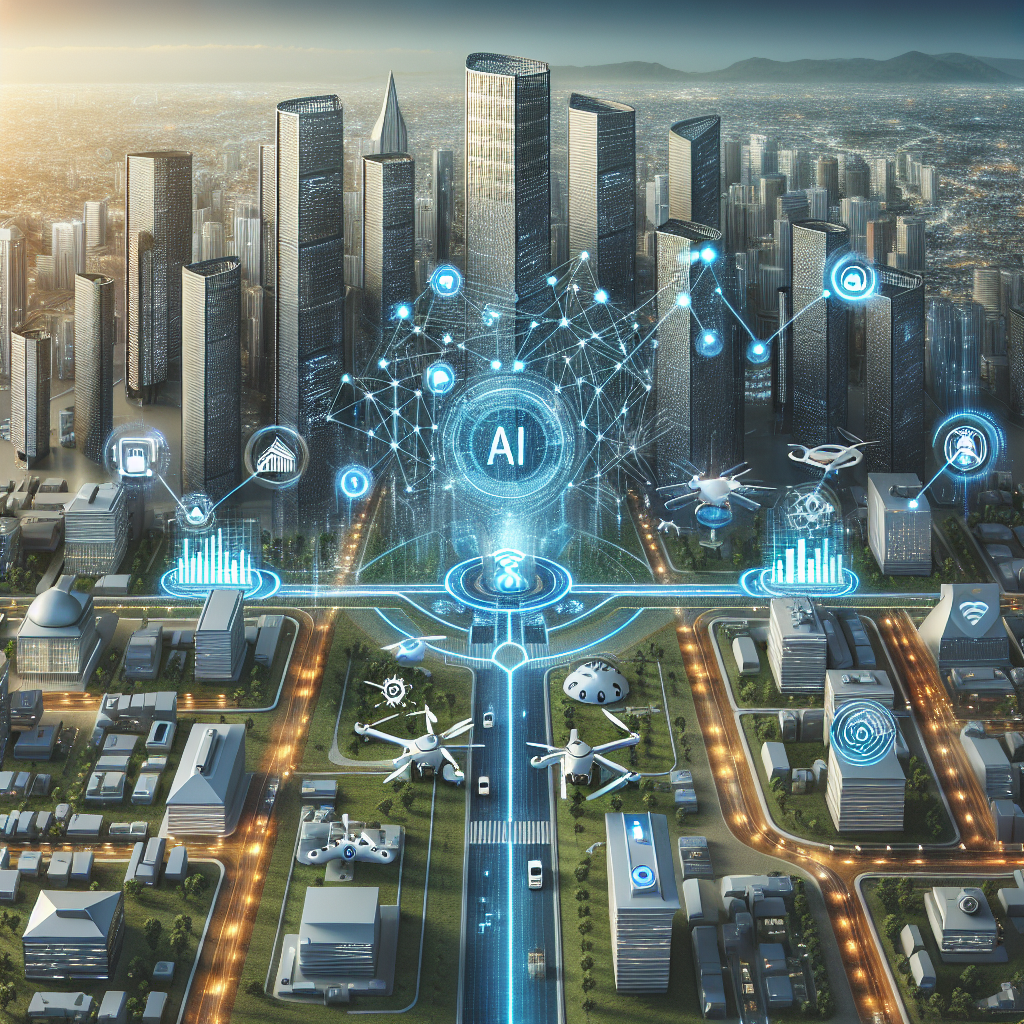In recent years, the concept of smart cities has gained traction as urban areas around the world seek to leverage technology to improve efficiency, sustainability, and quality of life for their residents. One of the key technologies driving the development of smart cities is artificial intelligence (AI). AI has the potential to revolutionize urban planning by providing insights and predictions that can help city officials make better decisions about infrastructure, transportation, and public services.
AI can be deployed in smart cities in a variety of ways, from optimizing traffic flow and reducing energy consumption to improving public safety and enhancing the overall quality of life for residents. This article will explore the various applications of AI in smart cities and how it can help to optimize urban planning.
One of the primary applications of AI in smart cities is in the area of transportation. With the growing populations in urban areas, traffic congestion has become a major issue in many cities around the world. AI can help to alleviate this congestion by optimizing traffic flow, detecting and predicting traffic patterns, and providing real-time updates to drivers and city officials. For example, AI-powered traffic management systems can adjust traffic signal timings based on real-time traffic data, reducing traffic congestion and improving overall traffic flow.
AI can also be used to improve public transportation systems in smart cities. By analyzing data on ridership, travel patterns, and service availability, AI can help city officials optimize bus routes, schedules, and frequencies to better meet the needs of residents. This can result in more efficient and reliable public transportation systems that encourage more people to use public transit, reducing traffic congestion and pollution in the process.
Another key application of AI in smart cities is in the area of energy efficiency. As cities seek to reduce their carbon footprint and become more sustainable, AI can play a crucial role in optimizing energy consumption and reducing waste. For example, AI-powered smart grids can analyze data on energy usage and production to optimize energy distribution and reduce waste. Similarly, AI can be used to optimize the operation of heating, cooling, and lighting systems in buildings, reducing energy consumption and costs.
AI can also help to improve public safety in smart cities by analyzing data from surveillance cameras, sensors, and other sources to detect and predict crime patterns. By using AI algorithms to analyze this data, city officials can identify high-crime areas, allocate resources more effectively, and prevent crime before it happens. In addition, AI can be used to alert emergency services to incidents in real-time, improving response times and overall public safety.
In addition to transportation, energy efficiency, and public safety, AI can also be used to optimize other aspects of urban planning in smart cities. For example, AI can help to analyze data on population demographics, land use, and economic trends to inform decisions about zoning, development, and infrastructure projects. By using AI to analyze this data, city officials can make more informed decisions that better meet the needs of residents and promote sustainable growth.
Overall, the deployment of AI in smart cities has the potential to revolutionize urban planning and improve the quality of life for residents. By leveraging the power of AI to analyze data, predict trends, and optimize systems, cities can become more efficient, sustainable, and livable for their residents.
FAQs:
1. How is AI deployed in smart cities?
AI is deployed in smart cities through a variety of applications, including optimizing traffic flow, improving public transportation systems, enhancing energy efficiency, and improving public safety. AI algorithms analyze data from sensors, cameras, and other sources to provide insights and predictions that can help city officials make better decisions about urban planning.
2. What are the benefits of using AI in smart cities?
The benefits of using AI in smart cities include improved efficiency, sustainability, and quality of life for residents. AI can help to optimize traffic flow, reduce energy consumption, improve public transportation systems, enhance public safety, and inform decisions about zoning, development, and infrastructure projects.
3. Are there any challenges to deploying AI in smart cities?
There are several challenges to deploying AI in smart cities, including concerns about data privacy and security, the need for robust infrastructure and connectivity, and the potential for bias in AI algorithms. City officials must address these challenges to ensure that AI is deployed in a responsible and ethical manner.
4. How can residents benefit from AI in smart cities?
Residents can benefit from AI in smart cities in a variety of ways, including reduced traffic congestion, more efficient public transportation systems, lower energy costs, and improved public safety. By leveraging the power of AI, cities can become more livable, sustainable, and enjoyable places to live for their residents.

